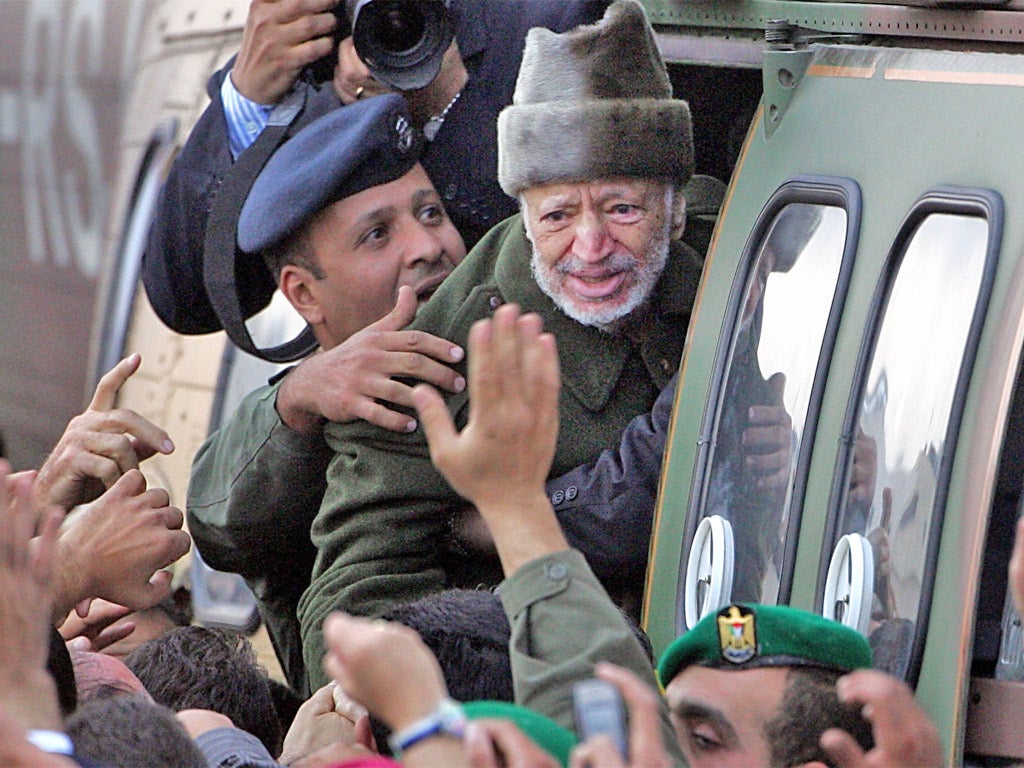How a Hamas deal with Israel could reinforce the Palestinian militant group's bitter rivalry with Fatah
It was Fatah, under its founder Yasser Arafat, that from the 1960s led the struggle against Israel

Your support helps us to tell the story
From reproductive rights to climate change to Big Tech, The Independent is on the ground when the story is developing. Whether it's investigating the financials of Elon Musk's pro-Trump PAC or producing our latest documentary, 'The A Word', which shines a light on the American women fighting for reproductive rights, we know how important it is to parse out the facts from the messaging.
At such a critical moment in US history, we need reporters on the ground. Your donation allows us to keep sending journalists to speak to both sides of the story.
The Independent is trusted by Americans across the entire political spectrum. And unlike many other quality news outlets, we choose not to lock Americans out of our reporting and analysis with paywalls. We believe quality journalism should be available to everyone, paid for by those who can afford it.
Your support makes all the difference.A Hamas-Israel deal might bring Gazans relief from the cycle of conflict that has killed thousands of people and devastated their territory. But it would also reinforce bitter rivalry and division between the Islamist Hamas and Fatah, President Mahmoud Abbas’s largely secular movement that still holds sway over Palestinian self-rule areas in the West Bank.
It was Fatah, under its founder Yasser Arafat, that from the 1960s led the struggle against Israel, and in 1993 signed a self-rule agreement that was supposed to lead to full peace. But partly because of the failure of the agreement to end occupation and perceived corruption in the ruling Palestinian Authority (PA), discontent with Fatah steadily grew – while the rival Hamas, with its slogan “Islam is the solution”, grew steadily more popular. In the 2006 elections, Hamas stunned the world by gaining a majority in the Palestinian Legislative Council and claiming it had a mandate to lead. But Fatah, by now led by President Mahmoud Abbas, countered that its own control of the presidency accorded it the primary leadership role.
Tensions boiled over in Gaza, Hamas’s bastion of support, the following year, with the Islamist movement staging a violent takeover from PA security forces. This left Fatah in continued charge of the West Bank self-rule areas with Hamas running a rump entity in Gaza that was quickly subjected to an Israeli blockade.
Since then a number of attempts at reuniting the two territories and governments have been launched, only to founder with the two sides unwilling to share power. The two territories, which comprise the future Palestinian state in the view of the international community, are separated by Israel, although the self-rule agreements specify that they are to be treated as one territorial unit.
Now, Fatah says that by agreeing that its channel to the outside world will be via the Mediterranean rather than through a connection with the West Bank, Hamas is deepening that separation. Hamas responds that Fatah that has failed to persuade Israel to allow a West Bank-Gaza linkage, so that the only way to lift the siege of Gaza is by sea. “If there were a passage open between the West Bank and Gaza we’d definitely use it, but why shouldn’t we open another one for the people of Gaza?” said Hassan Yousef.
Join our commenting forum
Join thought-provoking conversations, follow other Independent readers and see their replies
Comments